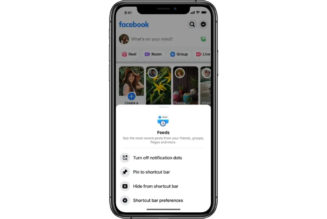/* custom css */
.tdi_4_87d.td-a-rec-img{ text-align: left; }.tdi_4_87d.td-a-rec-img img{ margin: 0 auto 0 0; }
The youth of South Africa – now more than ever – is becoming more assertive about the demands and aspirations they wish to see represented in their economy.
In fact, the skills and innovation of younger workers are becoming more important than ever as South Africa moves further into its digital evolution. The sustenance of our nation, therefore, depends on the access, information, and platforms we provide to our youth.
But our young up-and-comers aren’t just in business for the bucks.
/* custom css */
.tdi_3_4ea.td-a-rec-img{ text-align: left; }.tdi_3_4ea.td-a-rec-img img{ margin: 0 auto 0 0; }
Below are 6 things businesses in South Africa need to understand about Born Digital employees:
1. Job security is key, especially in South Africa
Citrix research shows that today’s business leaders are disconnected from what Born Digital knowledge workers really want from work, and have not accurately predicted the impact of the COVID-19 pandemic on this group’s motivations and aspirations.
While business leaders believe that cutting-edge workplace technology and training is critical to Born Digital employees’ job satisfaction, it is rather fundamental factors like career stability that these younger employees crave the most.
With unemployment amongst South African Youth now reaching a concerning 46.3%, the Born Digital are hungry for professional business opportunities.
According to the study, the most common demands of the youth are Permanent Employment (72%), Job Stability (85%) and Job Satisfaction (87%).
2. There’s no negotiation; the future is hybrid
What is immediately clear with this generation is that the way we work has changed forever.
Hybrid, flexible working is here to stay.
Over half of Born Digital knowledge workers want to spend most or all of their time working from home post-pandemic, and although many believe that the office is the best place for productivity, the majority say that home-working is best for wellbeing. The future is hybrid or distributed work, and companies will need to find a way to simplify work and create the space their employees need to succeed in this environment.
3. Purpose < Company Culture
The Born Digital are the first generation to grow up in an entirely digital world, and now account for most of the global workforce, including South Africa where they make up 34.7% of its population – but it’s about more than the bottom line for this generation.
Given the common perception that Born Digitals are naturally passionate creatives, it was fascinating to discover that only 30% of Born Digital employees would leave an organisation that lacked purpose, compared to 69% of current business leaders.
In fact, younger employees would prefer a work environment with a healthy company culture, which enables autonomy (83%), presents strong leadership (79%) and recognises performance through remuneration (81%).
4. Mindfulness is Treasured
Financial wealth is not the only priority for this generation of future leaders. In fact, 83% of Born Digital workers would prioritise employee mental health and wellbeing in their areas of work once they reached leadership levels within their careers.
With 16.5% of South Africans suffering from common mental health disorders like depression and anxiety in 2020, psyche is a currency that they are not willing to bargain within their working environments.
6. Get the balance right
By 2035, organisations will be led by the Born Digital generation. This cohort has grown up with technology integrated into their lives and information always at their fingertips, and they expect work technology to be seamless and intuitive.
As a result, their priorities are different from those of older generations; above all, they are seeking a healthy work-life balance and the flexibility to work how, when and where they choose.
Technology has a critical role to play.
While over two-thirds (67%) of Born Digital employees believe that the pandemic has shown that their organisation needs to invest more in digital technology, only 22% of business leaders believe this is the case.
Given the separate digital spaces they are occupying, are employees’ feelings on this issue failing to reach the leadership team?
Edited by Luis Monzon
Follow Luis Monzon on Twitter
Follow IT News Africa on Twitter
/* custom css */
.tdi_5_644.td-a-rec-img{ text-align: left; }.tdi_5_644.td-a-rec-img img{ margin: 0 auto 0 0; }










